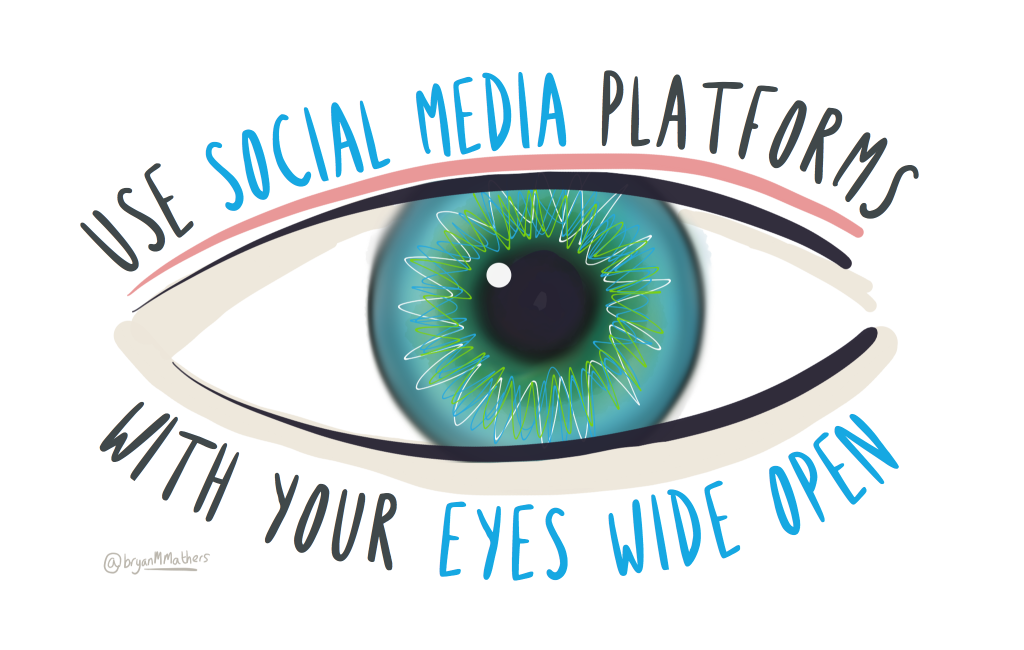The Increasing Significance of Social Media in the Learner Journey [FE Week]
The latest issue of FE Week features a supplement from City & Guilds. I’m consulting almost full-time with C&G until September, so I was delighted to be asked to collaborate with Bryan Mathers on this article (as well as the one I shared yesterday!)

With the exception of perhaps Snapchat, the extended moral panic around social media seems to be coming to an end. It’s therefore a good time to take stock of what the last ten years have brought us in terms of connecting with one another through technology – and how we might be best able to use social media for learning.
Interestingly, although new services pop up on a regular basis, it’s increasingly the case that social media incumbents quickly purchase their emerging competitors. For example, the messaging platforms WhatsApp and Instagram were purchased by Facebook, while Twitter has bought a whole host of smaller companies including TweetDeck and the video livestreaming platform Periscope. With the billions being spent in these deals, it’s worth remembering that there are a whole host of smaller, independent, open source alternatives out there that better respect your privacy (e.g. Telegram and Cryptocat).
Despite well-founded concerns around corporate and government surveillance when using social media platforms, there are nevertheless a number of unique opportunities that they provide. We should use these platforms with our eyes open, and encourage learners to do likewise. The following three advantages of social media presuppose teaching in a way that includes social media as part of the everyday learner journey.
1. Access to expertise
With the best will in the world, we as educators cannot be experts in everything we teach. One thing that social networks have brought us is the ability to follow the everyday work and contact people who, in previous generations, would have been inaccessible. Students can follow debates that public intellectuals and experts in a particular field are having today. This can lend a vibrancy and freshness to learning that textbooks and other ‘static’ media cannot provide.
This expertise can also be tailored. There are countless examples of experts leading and participating in Massive Open Online Courses (MOOCs). What’s more, many of these experts, particularly in the field of education, are incredibly generous with their time, interacting with both teachers and students around the world. Social media has truly democratised access to expertise.
2. Developing professional networks
The equivalent of the ‘little black book’ from days past can now been seen as the professional networks built by an individual. Professional social networking is often seen as the preserve of sites such as LinkedIn but, increasingly, we’re seeing this as more than merely a graphical front end on an email database. There are other, more nimble ways of communicating. For example, ‘tweetchats’ around a hashtag are a way to bring together people interested in the same topic for a short and intense period of time. The best known of these are #edchat (global) and #ukedchat (UK-specific) but there a whole host of these listed in this blog post. Some are subject/stage-specific.
Professional networks are important for teachers, but they’re extremely important for learners looking for their first job, or those attempting to move into their next job. In a time of funding pressures and a focus on employability, introducing learners to professional networks is an increasingly-important role for teachers. Learning is about both what you know and who you know, providing the opportunity to translate knowledge and skills into action.
3. Teacher automation
While a phrase such as ‘teacher automation’ sounds somewhat dystopian, one thing that technology is particularly good at is freeing humans from repetitive, routine tasks. For example, Sian Bayne and teachers on Edinburgh University’s E-learning and Digital Cultures MOOC created a ‘bot’ that was programmed to respond to very particular queries posed by students. Using the hashtag #edcmooc the bot responded in an ‘if this then that’ way to queries such as ‘When is the first assignment due?’
One of the biggest reasons teachers give for leaving the profession is administrative workload. If we can help mitigate that through the appropriate use of technology, then we should. Semi-autonomous agents (i.e. ‘bots’) provide one way in which we can shift our focus from routine and repetitive tasks towards thinking about learning in new ways.
Conclusion
From a ‘slightly odd’ thing to do ten years ago, social media has become one of the primary ways in which we interact with friends, family, peers, colleagues, and learners. The networks we use to communicate all have benefits and drawbacks, inbuilt biases and tendencies. However, the question is not whether we should use these platforms, but how.
The most forward-thinking organisations and institutions are thinking about the ways social media can simultaneously improve the learner journey, reduce teacher workload, and drive down costs. Doing so takes a change in mindset and having to learn new things, but as educators that’s exactly what we should be modelling to learners.
Image CC BY-ND Bryan Mathers

